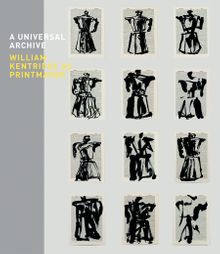CURATOR INDEX
|
|
STATUS: Out of print | 00/00/00 For assistance locating a copy, please see our list of recommended out of print specialists |
 Sol LeWitt
Sol LeWitt
Published by JRP|Ringier.
Edited by Béatrice Gross. Text by Susanna Singer, John Hogan, Béatrice Gross, Lucy Lippard, Rosalind Krauss, Mel Bochner, Dan Graham, Robert Smithson.
In his 1967 "Paragraphs on Conceptual Art," Sol LeWitt set out the fundamental principle of his artistic practice: "In conceptual art the idea or concept is the most important aspect of the work.... The idea becomes a machine that makes the art." From the first wall drawing in 1968 until his death in 2007, LeWitt never ceased to develop new "machines," conceiving some 1,200 wall drawings and laying down the foundations of Conceptual and Minimalist art. LeWitt's wall drawings, always installed by assistants, eliminated any intermediary object (such as a canvas) between the work and its support, thereby dovetailing a sensuous material immediacy with a powerful Platonic detachment. His sculptural variations on grids, cubes and pyramids likewise project this moving simplicity and clarity.
Sol LeWitt (1928-2007) was born in Hartford, Connecticut, where he took art classes at the Wadsworth Atheneum. After receiving a BFA from Syracuse University he worked as a graphic designer in the office of architect I.M. Pei. In 1976, LeWitt cofounded the artists' book bookstore Printed Matter in New York, with Lucy Lippard. A retrospective of his wall drawings opened to the public in 2008 at MASS MoCA in North Adams, Massachusetts, where it will remain on view for 25 years.
PUBLISHER
JRP|Ringier
BOOK FORMAT
Hardcover, 10 x 11.25 in. / 326 pgs / illustrated throughout.
PUBLISHING STATUS
Pub Date 3/31/2013
Out of print
DISTRIBUTION
D.A.P. Exclusive
Catalog: SPRING 2013 p. 15
PRODUCT DETAILS
ISBN 9783037643068 TRADE
List Price: $55.00 CAD $65.00
AVAILABILITY
Not available
STATUS: Out of print | 00/00/00 For assistance locating a copy, please see our list of recommended out of print specialists |
 Robert Lehman Lectures on Contemporary Art No. 4
Robert Lehman Lectures on Contemporary Art No. 4
Published by Dia Art Foundation.
Edited by Lynne Cooke, Karen Kelly and Barbara Schröder. Essays by Dave Hickey, Rosalind Krauss, Ulrich Loock, Alexander Alberro, Jan Avgikos, Richard Shiff, Dirk Snauwaert, Miwon Kwon, Colin Gardner. Foreword by Philippe Vergne.
PUBLISHER
Dia Art Foundation
BOOK FORMAT
Paperback, 5.5 x 8 in. / 200 pgs / 14 color / 88 bw.
PUBLISHING STATUS
Pub Date 10/31/2009
Active
DISTRIBUTION
D.A.P. Exclusive
Catalog: SPRING 2010 p. 83
PRODUCT DETAILS
ISBN 9780944521793 TRADE
List Price: $16.95 CAD $24.00 GBP £14.99
AVAILABILITY
In stock
in stock $16.95 Free Shipping UPS GROUND IN THE CONTINENTAL U.S. |
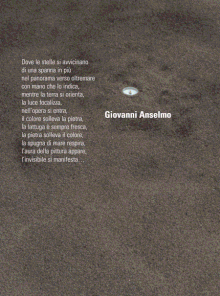 Giovanni Anselmo: Where The Stars Are Coming
Giovanni Anselmo: Where The Stars Are Coming
Published by Hopefulmonster Editore.
Edited by Maraniello Gianfranco, Andrea Viliani. Text by Maraniello Gianfranco, Tacita Dean, Rosalind Krauss, Suzanne van de Ven. Interview by Andrea Viliani.
PUBLISHER
Hopefulmonster Editore
BOOK FORMAT
Paperback, 8.25 x 11 in. / 256 pgs / 82 color / 80 bw.
PUBLISHING STATUS
Pub Date 5/1/2007
Out of print
DISTRIBUTION
D.A.P. Exclusive
Catalog: SPRING 2007 p. 136
PRODUCT DETAILS
ISBN 9788877572103 TRADE
List Price: $65.00 CAD $75.00
AVAILABILITY
Not available
STATUS: Out of print | 00/00/00 For assistance locating a copy, please see our list of recommended out of print specialists |
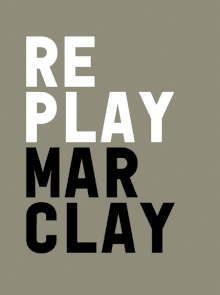 Christian Marclay: Replay
Christian Marclay: Replay
Published by JRP|Ringier.
Edited by Jean-Pierre Criqui. Text by Philippe-Alain Michaud, Rosalind E. Krauss, Peter Szendy, Emma Lavigne.
PUBLISHER
JRP|Ringier
BOOK FORMAT
Hardcover, 6.5 x 8.5 in. / 176 pgs / 36 color / 140 bw.
PUBLISHING STATUS
Pub Date 9/1/2007
Out of print
DISTRIBUTION
D.A.P. Exclusive
Catalog: FALL 2007 p. 128
PRODUCT DETAILS
ISBN 9783905770575 TRADE
List Price: $39.95 CAD $50.00
AVAILABILITY
Not available
STATUS: Out of print | 12/11/2007 For assistance locating a copy, please see our list of recommended out of print specialists |
 David Smith: A Centennial
David Smith: A Centennial
Published by Guggenheim Museum Publications.
Essays by Carmen Giménez, Rosalind E. Krauss, David Anfam, Michael Brenson and Paul Hayes Tucker.
PUBLISHER
Guggenheim Museum Publications
BOOK FORMAT
Hardcover, 9.5 x 10.75 in. / 460 pgs / 300 color.
PUBLISHING STATUS
Pub Date 3/1/2006
Out of print
DISTRIBUTION
D.A.P. Exclusive
Catalog: SPRING 2006 p. 7
PRODUCT DETAILS
ISBN 9780892073436 TRADE
List Price: $85.00 CAD $100.00
AVAILABILITY
Not available
STATUS: Out of print | 12/11/2007 For assistance locating a copy, please see our list of recommended out of print specialists |
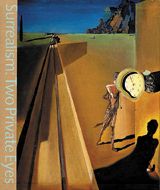 Surrealism: Two Private Eyes
Surrealism: Two Private Eyes
Published by Guggenheim Museum Publications.
Edited by Edward Weisberger. Essays by Timothy Baum, José Pierre, Werner Spies, Rosalind E. Krauss and Jean Toulet.
PUBLISHER
Guggenheim Museum Publications
BOOK FORMAT
Slipcased, 10 x 12 in. / 896 pgs / 930 color / illustrated throughout
PUBLISHING STATUS
Pub Date 7/2/2003
Out of print
DISTRIBUTION
D.A.P. Exclusive
Catalog: FALL 2003
PRODUCT DETAILS
ISBN 9780892072194 TRADE
List Price: $95.00 CAD $115.00
AVAILABILITY
Not available
STATUS: Out of print | 6/1/2005 For assistance locating a copy, please see our list of recommended out of print specialists |
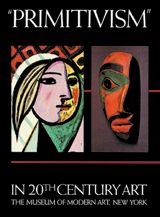 Primitivism In 20Th Century Art
Primitivism In 20Th Century Art
Affinity of the Tribal and the Modern
Published by The Museum of Modern Art, New York.
By Paul Gauguin. Artwork by Constantin Brancusi, Jacques Lipchitz, Amadeo Modigliani, Henri Moore, Alberto Giacometti, Paul Klee, Pablo Picasso. Edited by William Rubin. Contributions by Kirk Varnedoe. Text by Ezio Bassani, Christian Feest, Sidney Geist, Donald Gordon, Jean Laude, Gail Levin, Jean-Louis Paudrat, Philippe Peltier, Laura Rosenstock, Alan Wilkinson, Evan Maurer, Richard Oldenburg, Jack Flam, Rosalind Krauss.
PUBLISHER
The Museum of Modern Art, New York
BOOK FORMAT
Paperback, 8.75 x 12 in. / 706 pgs / 378 color 709 bw.
PUBLISHING STATUS
Pub Date 7/2/2002
Out of print
DISTRIBUTION
D.A.P. Exclusive
Catalog: FALL 2002
PRODUCT DETAILS
ISBN 9780870705342 TRADE
List Price: $65.00 CAD $75.00
AVAILABILITY
Not available
STATUS: Out of print | 4/1/2008 For assistance locating a copy, please see our list of recommended out of print specialists |
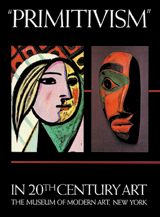 Primitivism In 20Th Century Art
Primitivism In 20Th Century Art
Affinity of the Tribal and the Modern
Published by The Museum of Modern Art, New York.
By Paul Gauguin. Artwork by Constantin Brancusi, Jacques Lipchitz, Amadeo Modigliani, Henri Moore, Alberto Giacometti, Paul Klee, Pablo Picasso. Edited by William Rubin. Contributions by Kirk Varnedoe. Text by Ezio Bassani, Christian Feest, Sidney Geist, Donald Gordon, Jean Laude, Gail Levin, Jean-Louis Paudrat, Philippe Peltier, Laura Rosenstock, Alan Wilkinson, Evan Maurer, Richard Oldenburg, Jack Flam, Rosalind Krauss.
PUBLISHER
The Museum of Modern Art, New York
BOOK FORMAT
Slipcased, 9 x 12 in. / 706 pgs / 378 color 709 bw
PUBLISHING STATUS
Pub Date 7/2/2002
Out of print
DISTRIBUTION
D.A.P. Exclusive
Catalog: FALL 2002
PRODUCT DETAILS
ISBN 9780870705182 TRADE
List Price: $125.00 CAD $150.00
AVAILABILITY
Not available
STATUS: Out of print | 6/1/2005 For assistance locating a copy, please see our list of recommended out of print specialists |
 Jackson Pollock: New Approaches
Jackson Pollock: New Approaches
Published by The Museum of Modern Art, New York.
Edited by Kirk Varnedoe and Pepe Karmel. Essays by T.J. Clark, Robert Storr, James Coddington, Carol C. Mancusi-Ungaro, Rosalind E. Krauss, Anne M. Wagner, Jeremy Lewison, Pepe Karmel and Kirk Varnedoe.
PUBLISHER
The Museum of Modern Art, New York
BOOK FORMAT
Hardcover, 10.5 x 8.5 in. / 112 pgs / 322 color.
PUBLISHING STATUS
Pub Date 9/2/2002
Out of print
DISTRIBUTION
D.A.P. Exclusive
Catalog: FALL 2002
PRODUCT DETAILS
ISBN 9780870700866 TRADE
List Price: $24.95 CAD $27.50
AVAILABILITY
Not available
STATUS: Out of print | 4/1/2008 For assistance locating a copy, please see our list of recommended out of print specialists |
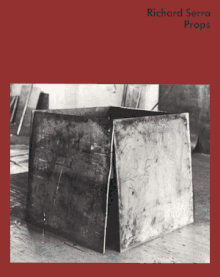 Richard Serra: Props
Richard Serra: Props
Published by Richter Verlag.
Artwork by Richard Serra. Edited by Christoph Brockhaus. Contributions by Manfred Schnecken. Text by Rosalind Krauss.
PUBLISHER
Richter Verlag
BOOK FORMAT
Hardcover, 8.5 x 10.5 in. / 264 pgs / 32 bw / 85 duotone
PUBLISHING STATUS
Pub Date 8/2/1995
Out of print
DISTRIBUTION
D.A.P. Exclusive
Catalog: FALL 1995
PRODUCT DETAILS
ISBN 9783928762212 TRADE
List Price: $70.00 CAD $85.00
AVAILABILITY
Not available
STATUS: Out of print | 8/15/2005 For assistance locating a copy, please see our list of recommended out of print specialists |

